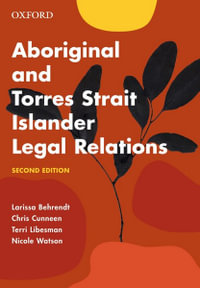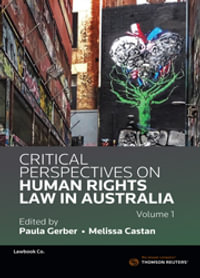What is the legacy of Brown vs. Board of Education? While it is well known for establishing racial equality as a central commitment of American schools, the case also inspired social movements for equality in education across all lines of difference, including language, gender, disability, immigration status, socio-economic status, religion, and sexual orientation. Yet more than a half century after Brown, American schools are more racially separated than before, and educators, parents and policy makers still debate whether the ruling requires all-inclusive classrooms in terms of race, gender, disability, and other differences.
In Brown's Wake examines the reverberations of Brown in American schools, including efforts to promote equal opportunities for all kinds of students. School choice, once a strategy for avoiding Brown, has emerged as a tool to promote integration and opportunities, even as charter schools and private school voucher programs enable new forms of self-separation by language, gender, disability, and ethnicity.
Martha Minow, Dean of Harvard Law School, argues that the criteria placed on such initiatives carry serious consequences for both the character of American education and civil society itself. Although the original promise of Brown remains more symbolic than effective, Minow demonstrates the power of its vision in the struggles for equal education regardless of students' social identity, not only in the United States but also in many countries around the world. Further, she urges renewed commitment to the project of social integration even while acknowledging the complex obstacles that must be overcome. An elegant and concise overview of Brown and its aftermath, In Brown's Wake explores the broad-ranging and often surprising impact of one of the century's most important Supreme Court decisions.
Industry Reviews
"Minow's book presents enlightening discussions for educators, policy makers, and informed citizens. Essential for academic and public libraries." -- Library Journal
"The Brown decision wisely and bravely struck down state-imposed racial segregation. Martha Minow capably describes how that decision changed the lives of millions of people." --Diane Ravitch, The New Republic
"Everyone knows how important the Brown v Board of Education decision was. But until Martha Minow turned her exceptional mind and imagination to the subject, no one fully appreciated the decisions' reach across our society and across national boundaries. In Brown's Wake is eloquent and careful, scholarly and accessible, passionate and thoughtful. Thanks to Minow, we will now have a far greater appreciation of what may be the most significant
and constructive decision in the Supreme Court's history."--E.J. Dionne, author of Why Americans Hate Politics
"Brown was a landmark case and Martha Minow has written a landmark book about it. No effort to bring the issues raised by that decision up to date can top this one."--Alan Wolfe, Professor of Political Science, Boston College
"In today's education discussions, Brown v. Board of Education is invoked as a vague metaphor for the need to address the racial achievement gap, disconnected from the case's original declaration that separate schools are inherently unequal. Martha Minow's sweeping and provocative narrative brilliantly depicts the many adaptations of Brown, while at the same time anchoring the decision to its fundamental insight about the importance of
integrated education in a pluralistic democracy."--Richard D. Kahlenberg, senior fellow, The Century Foundation, and author of All Together Now
"In Brown's Wake is a panoramic view of how this landmark decision has shaped education policy and practice both in the United States and abroad. With an objective eye, Martha Minow leads us through various reform measures designed to promote equal opportunity, skillfully displaying points of contention between integration and segregation, equality and pluralism, sameness and difference. Mining an impressively broad body of social science research, she
acknowledges its limitations and the need to find pragmatic and effective solutions to continuing inequalities."--Rosemary Salomone, Professor of Law, St. John's University
"Overall, the book is an outstanding cultural exploration of perhaps the most famous Supreme Court decision ever. Excellent for collections on law and civil rights...Highly recommended..." -- Choice
2011 Scribes Book Award Honorable Mention
"A well-written and informed brief in legal fashion." -- Du Bois Review

























